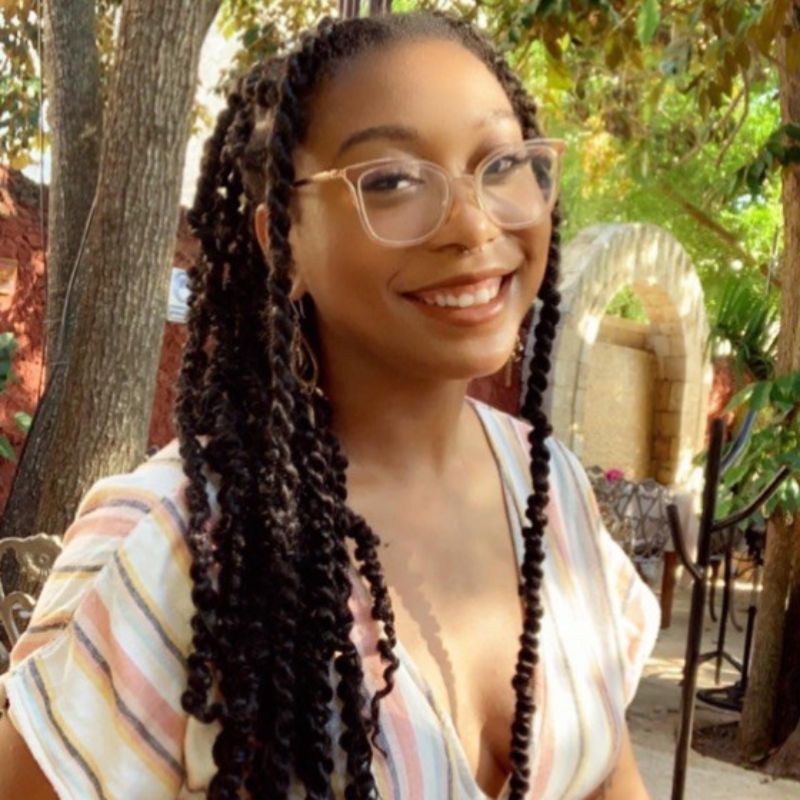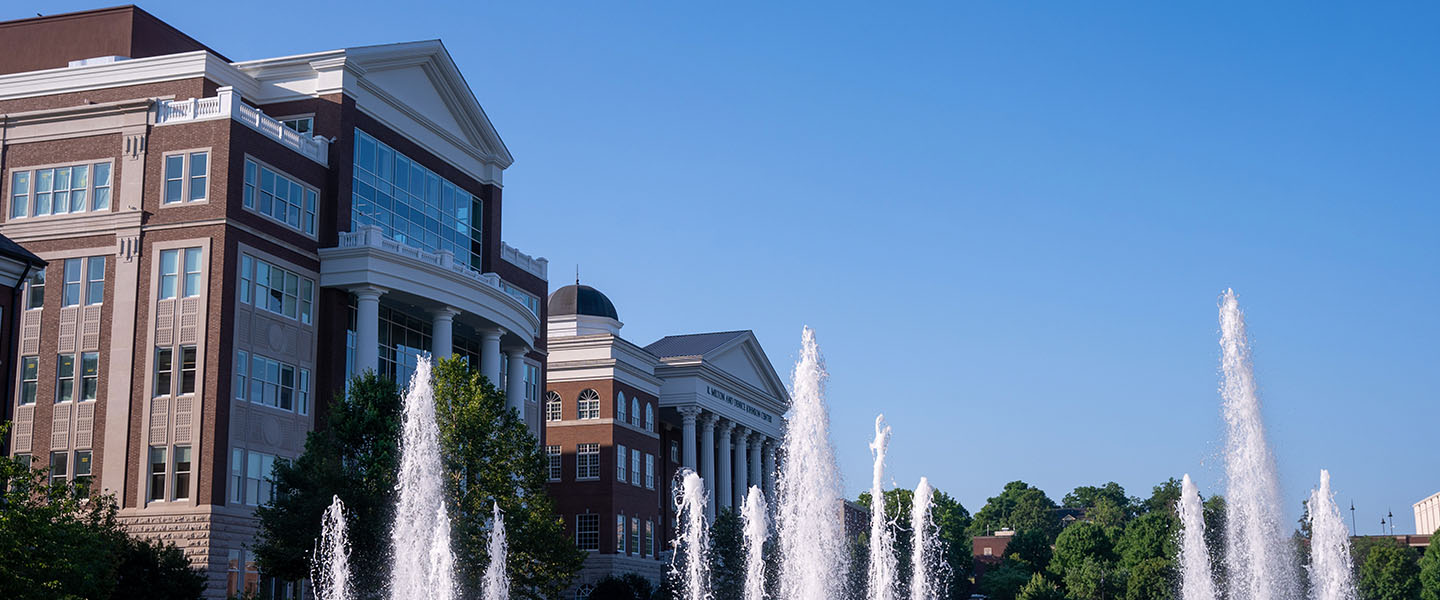Exploring the need for cultural competency and compassion in health care
Chanel Thomas ('18) is demonstrating the value of combining seemingly unrelated fields by double-majoring in nursing and Spanish. Her journey not only showcases the flexibility of higher education, but the impact it can have on others who need help.
Thomas' Double-Major Journey
As a Nashville native, Thomas’ nursing journey began in high school as a month-long volunteer at Monroe Carrell Jr. Children’s Hospital at Vanderbilt through a local program. The experience allowed Thomas to shadow therapists, nurses, music and art therapists and other professionals, giving her a behind-the-curtain look at what a career in nursing could be.
 Perhaps most importantly, she witnessed the relationships these professionals had formed with their patients which propelled her to study nursing at Belmont.
Perhaps most importantly, she witnessed the relationships these professionals had formed with their patients which propelled her to study nursing at Belmont.
Several semesters into her nursing education, Thomas decided to pursue a Spanish major in addition to her current studies. The rigorous nursing curriculum challenged Thomas and pushed her to excel in a field known for its intense academic demands. However, it was her experiences in Belmont’s College of Liberal Arts & Socials Sciences that provided the crucial balance she needed to become a well-rounded healthcare professional.
Thomas had taken several Spanish classes prior to tacking on the foreign language major and always had an appreciation for the language.
“We have a lot of Spanish speakers here in Tennessee, and after taking a few Spanish classes at Belmont, I knew I wanted to learn more about Spanish culture, history and literature,” said Thomas. “Especially as a person of color, I want to always be mindful and appreciative of other people’s backgrounds and always grow my cultural competence.”
After being convinced to add a Spanish major by her Spanish professor and soon-to-be-advisor Dr. Mitch McCoy, the two worked out how Thomas could still graduate in four years. From that point on, her course was set.
The humanities courses she took offered Thomas a broader perspective on human experiences and cultures. While her nursing classes were highly technical, her Spanish classes provided her opportunities to study and discuss people and cultural nuances she felt she needed.
“If I had not done that, I know I would have personally been a pretty cold nurse,” Thomas said. “Spanish motivated my interactions with people and motivated me to be a good human being.”
Humanity at the Heart of Health Care
Today, Thomas’ unique educational background has positioned her as a bridge between health care and Hispanic communities. She works at Connectus Health, a primary care center in Nashville, and sees patients ranging from newborns to seniors. Many of her patients are either immigrants or refugees, and her fluency in Spanish allows her to provide culturally competent care to a population often underserved in the health care system.
Beyond just speaking the same language as patients, Thomas’ bilingual skills play a crucial role in her humanitarian efforts. As someone who understands Hispanic culture, she knows that many view mental and physical health differently than White Americans.

One example she provided was many Hispanic adults claim they occasionally have “ataqeus de nervios,” or nervous attacks, but often times reject a depression or anxiety diagnosis, instead asking to see a cardiologist. Their culture may deem someone with mental health struggles as “crazy,” so their mental health problems go unaddressed.
“For a lot of these families, their health is not the most important thing to them,” Thomas said. “What’s important is putting food on the table, their cultural customs and job acquisition, and their health falls to the wayside. Many people in this community don’t come in because they have stubbed their toe — it’s because they have 10 things going on, and after they leave the office, they might not come back. It’s so important to understand these things and try to help them realize the severity of what they are facing.”
In addition to her work at Connectus Health, Thomas also owns her own private practice — Blue Sage Wellness. While serving anyone that needs care, Thomas has emphasized making Blue Sage Wellness a safe place for underserved communities such as people of color and LGBTQ+ individuals. Again, her approach is deeply rooted in cultural understanding and compassion.
Reflecting on her Belmont experience, Thomas acknowledged the University's role in shaping her career path. While Spanish heled her with the humanities aspect of nursing, the nursing program's clinical rotations, especially her psychiatric rotation, helped solidify her passion for mental health care.
Growing up in a house off Douglas Ave. with four generations of family members living together, she was exposed to chronic mental illnesses such as schizophrenia and bipolar disorder early in life. “Without too much studying, I was able to take an exam and make an A because I could see my own family reflected in the questions. That was when it all really clicked for me.”
Thomas serves as a powerful example of how interdisciplinary education changes lives. By combining the technical skills of nursing with the cultural insights gained from her Spanish major, she has created a unique niche for herself in health care. Thomas is not just treating patients but bridging cultural gaps and providing compassionate care to communities that often struggle to find it.
Learn More
Learn more about the programs in this story.

